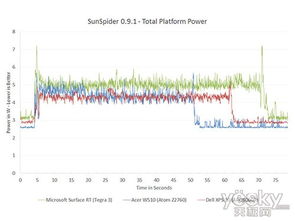
Spider Bite on Arm: A Comprehensive Guide
Have you ever found yourself dealing with a spider bite on your arm? It can be a distressing experience, but understanding the situation can help you manage it effectively. In this article, we will delve into the details of spider bites on the arm, covering symptoms, treatment, prevention, and more.
Understanding Spider Bites

Spider bites can occur when a spider feels threatened or cornered. While most spider bites are harmless, some can be quite serious. Here’s what you need to know about spider bites on the arm:
| Spider Type | Common Symptoms | Severity |
|---|---|---|
| Black Widow | Pain, redness, swelling, nausea, vomiting, fever | Severe |
| Brown Recluse | Pain, redness, swelling, itching, blister formation | Varies |
| House Spider | Pain, redness, swelling | Mild to Moderate |
As you can see from the table, the severity of a spider bite can vary greatly depending on the type of spider. It’s important to identify the spider if possible, as this can help determine the appropriate treatment.
Recognizing Symptoms

After a spider bite on your arm, you may experience a range of symptoms. Here are some common signs to look out for:
- Pain at the bite site
- Redness and swelling
- Itching
- Warmth or tenderness
- Blister formation
- In severe cases, nausea, vomiting, fever, or difficulty breathing
Keep in mind that not everyone will experience the same symptoms, and some may not have any symptoms at all.
Immediate First Aid

When dealing with a spider bite on your arm, it’s important to take immediate action. Here are some steps to follow:
- Wash the bite area with soap and water to prevent infection.
- Apply a cool, wet compress to reduce swelling and pain.
- Keep the affected arm elevated to reduce swelling.
- Avoid scratching the bite area to prevent infection.
Seeking Medical Attention
In some cases, you may need to seek medical attention for a spider bite on your arm. Here are some situations where you should consider visiting a healthcare professional:
- Severe pain or swelling
- Difficulty breathing or swallowing
- Signs of infection, such as increased redness, warmth, or pus
- Any symptoms that worsen or do not improve within a few days
Treatment Options
The treatment for a spider bite on your arm will depend on the severity of the bite and the type of spider. Here are some common treatment options:
- Antibiotics: Prescribed for infected bites.
- Pain relievers: Over-the-counter medications like ibuprofen or acetaminophen can help manage pain.
- Anti-inflammatory medications: To reduce swelling and inflammation.
- Spider antivenom: Available for severe black widow or brown recluse bites.
Preventing Spider Bites
Preventing spider bites is always better than dealing with the aftermath. Here are some tips to help you avoid getting bitten:
- Keep your living space clean and clutter-free to reduce spider habitats.
- Seal any cracks or gaps where spiders might enter your home.
- Wear gloves when handling items that may have been in a spider-infested area.
-
Related Posts
what drill bit for metal,What Drill Bit for Metal: A Comprehensive Guide
What Drill Bit for Metal: A Co…
tiny yellow bugs that bite,Tiny Yellow Bugs That Bite: A Comprehensive Guide
Tiny Yellow Bugs That Bite: A …



